Not Your Average Death Blog

Why an Innocent Woman Spent 27 Years in Prison
Imagine spending nearly three decades in prison for a crime you didn’t commit. That was the reality for Joyce Watkins, who in 1989 was wrongfully convicted of the rape and murder of her four-year-old great-niece. Joyce and her longtime partner, Charlie Dunn, never stopped insisting they were innocent. Yet flawed medical testimony, prosecutorial missteps, and systemic biases put them behind bars for life.
Charlie tragically died in prison after 27 years. Joyce was paroled in 2015 but forced to live under the stigma and restrictions of being labeled a registered sex offender. Still, she never gave up her fight to clear her name.
In this episode of The Death Readiness Podcast, I talk with Jason Gichner, Executive Director of the Tennessee Innocence Project, about Joyce’s story, the flaws in the justice system, and what her case teaches us about resilience, justice, and protecting your voice.

Why Your Business Needs an Estate Plan, Too
What would happen to your business if you didn’t come back after a long weekend? Would your clients get what they’ve paid for? Would invoices get paid? Would anyone even know where to start?
This week’s Tuesday Triage question came from Julie in Virginia, who runs an online business and wanted to know if her business needs an estate plan. The answer is simple: yes.
Because planning isn’t just about what happens if something goes wrong; it’s about agency. It’s about building a business that can survive a sale, a sabbatical, or the unexpected.

How Taylor Swift’s Path to Stardom Began in Probate Court
Taylor Swift is all over the headlines right now with her recent engagement, but did you know her path to stardom began in probate court??
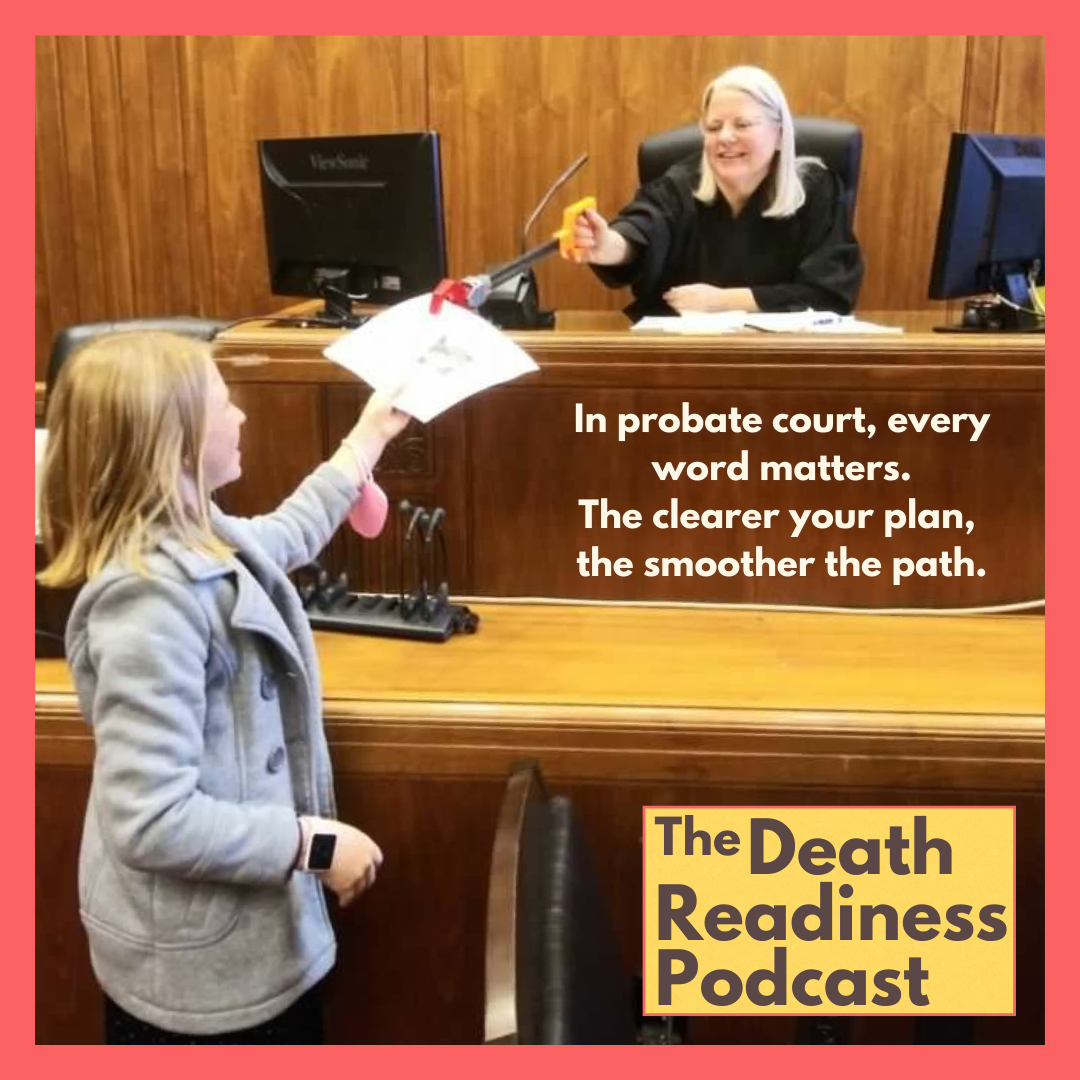
What Really Happens to DIY Wills in Probate Court
When most people say “I just want to avoid probate,” what they really mean is: I want things to be clear and simple. Today I sat down with Probate Court Judge Andra Hedrick from Davidson County, Tennessee, to demystify what probate actually is, why clarity matters, and how well‑intended “simple” Wills (handwritten notes, internet forms, AI drafts) can create complicated outcomes later on.
A Will isn’t a magic key the moment you sign it. It becomes legally effective only IF the court admits it to probate, confirming the basic requirements (like the right signatures, witnesses, and formalities) have been met.
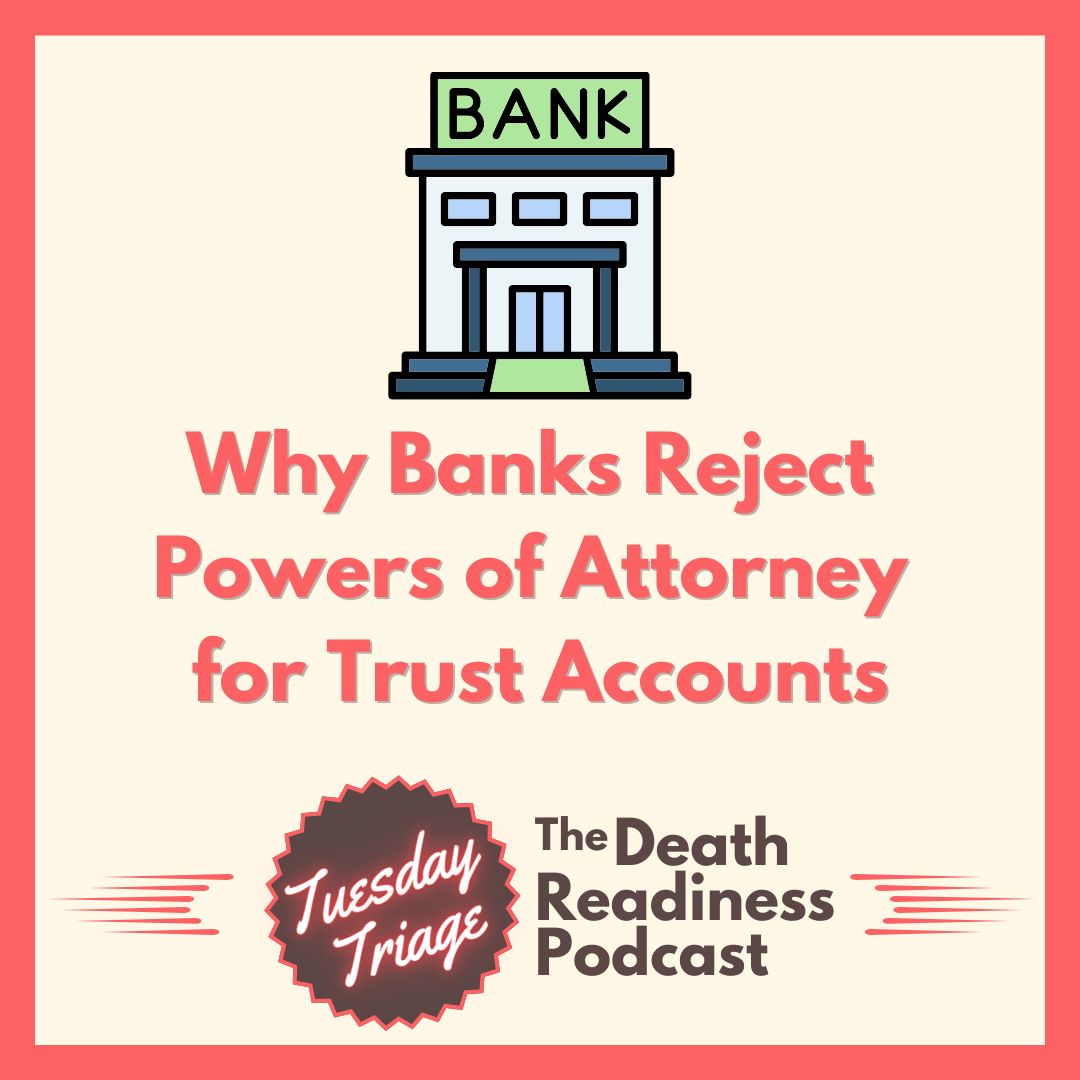
Why Banks Reject Powers of Attorney for Trust Accounts
Have you ever been surprised when a bank accepts a power of attorney for one account but rejects it for another? That’s exactly what happened to Lindsey from Tennessee. She could use her dad’s power of attorney for his checking and savings accounts, but when she tried to use it to access his trust accounts, the bank said no — and didn’t explain why.
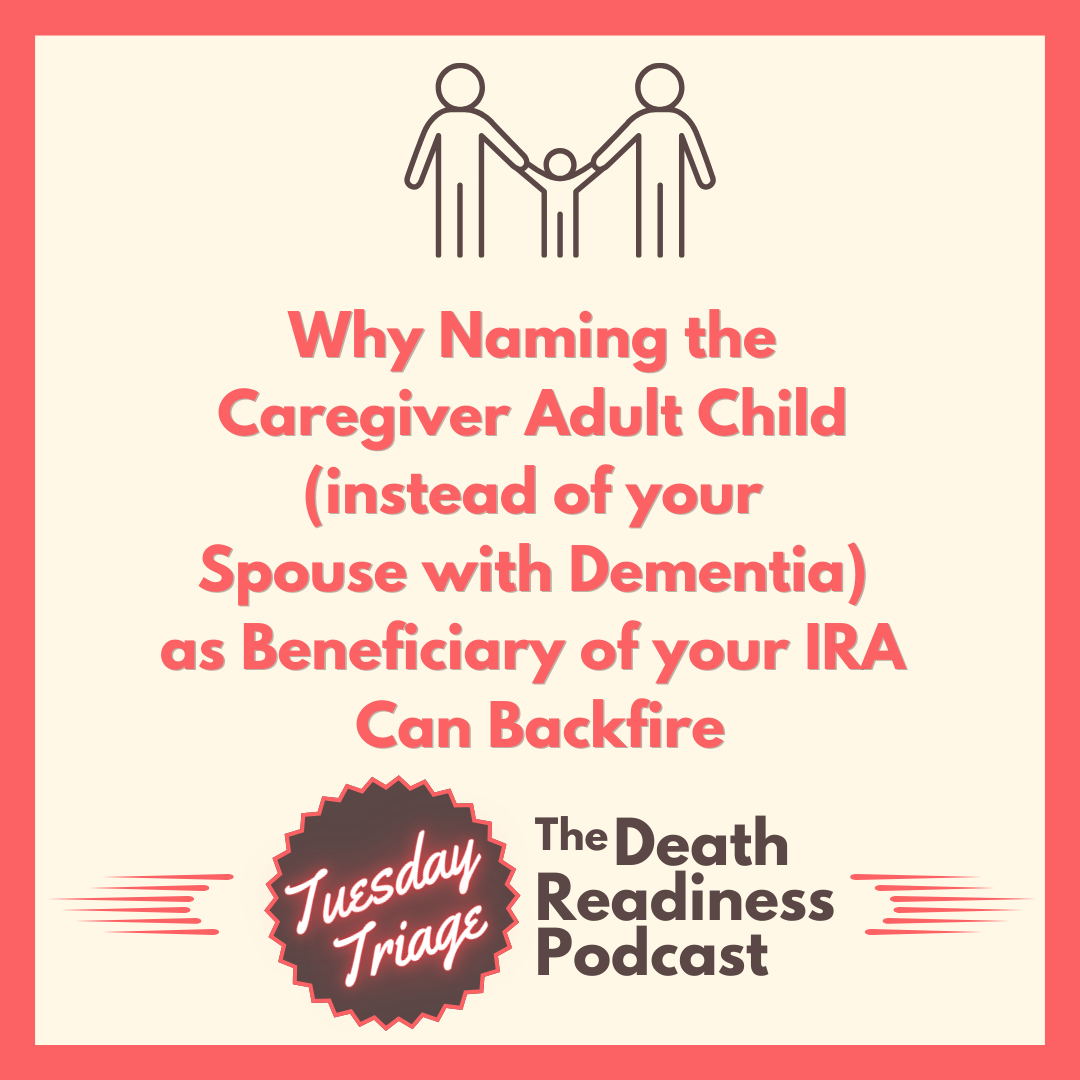
Why Naming the Caregiver Adult Child (instead of your Spouse with Dementia) as Beneficiary of your IRA Can Backfire
It’s a situation many families face: a healthy parent wants to make sure their spouse with dementia is cared for if the healthy parent dies first. The instinct might be to name the caregiving adult child as the beneficiary of the IRA — trusting them to use the funds for the parent who needs care. But what seems simple can actually put both the money and the spouse with dementia at risk.
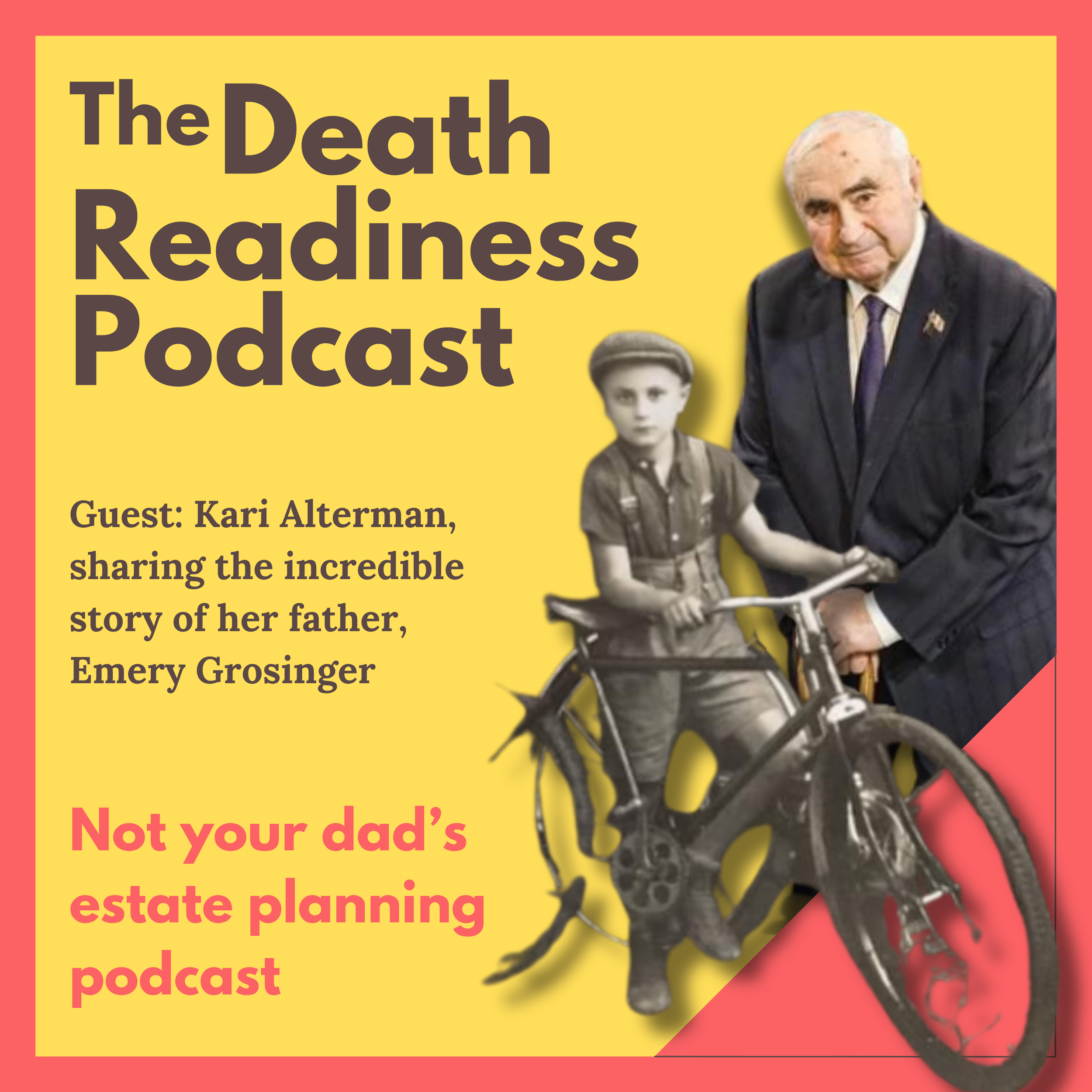
How One Boy Survived Auschwitz and Found His Dog
Most kids spend their 12th birthday with playing with friends and eating cake.
Emery Grosinger spent his in Auschwitz.
Over the next 12 months, Emery endured a Nazi roundup, forced labor, the loss of both parents and a death march, all before his 13th birthday on May 8, 1945, now known as Victory in Europe Day.
In this episode, I talk with Kari Alterman, Emery’s daughter, about what it means to rebuild from nothing.

What Happens When a Pregnant Woman Is Declared Brain Dead?
Over the weekend, my daughter and I volunteered at a local event. She earned enough tickets to “buy” an old-school etch-a-sketch—the kind with the knobs you twist to draw. The next morning, I saw it beside her bed, and she had written: “Word of the day: kind.”
Something had happened the day before that hurt her feelings. And I think that was her way of reminding herself to respond with grace.
This week’s episode is about someone else’s daughter. And it’s about the laws that can take away our ability to make decisions, even when we think we’ve made them.

What Every Parent Needs to Know When Their Child Turns 18
When your child legally becomes an adult at age 18, a lot changes.
You can still pay their tuition, keep them on your health insurance, pack their favorite snacks for the dorm. But in a medical emergency, you don’t have a right to their healthcare information.
Sadly, most parents don’t realize this until there’s an unexpected crisis.
Today on The Death Readiness Podcast, I share the stories of two young women whose families fought landmark legal battles because neither had signed an advance healthcare directive before tragedy struck. Their stories made national headlines, and they also left a legacy we can learn from.
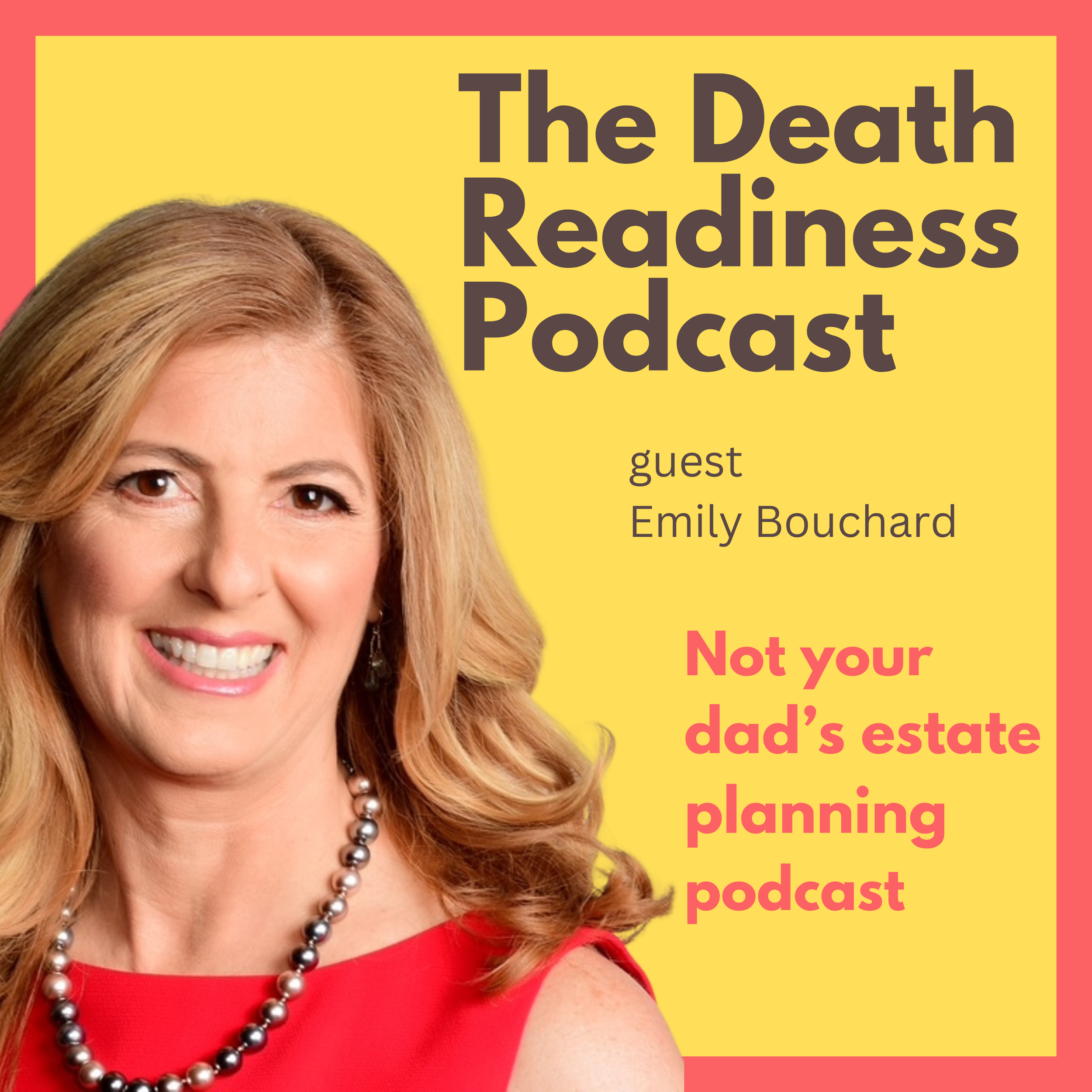
Why Prenups Aren’t Just for the Rich (or the Divorcing)
Most people associate prenuptial agreements with cynicism, mistrust, or worst-case scenarios. But what if we’ve been looking at them all wrong?
In this week’s episode of The Death Readiness Podcast, we’re flipping the script. I sit down with family dynamics coach, Emily Bouchard, to talk about how hard, honest, ongoing conversations about money can actually strengthen relationships.

What You Need to Know About Medicaid and Protecting Your Mom’s House
I get asked this all the time: “Should we put mom’s house in a trust in case she needs nursing home care?”
In today’s Tuesday Triage episode, I answer that question through the story of a listener named Eileen. She’s 73, lives alone in upstate New York, and owns her home. Her son-in-law thinks she should put her house in a trust to “protect it from the government.” Eileen’s not so sure.
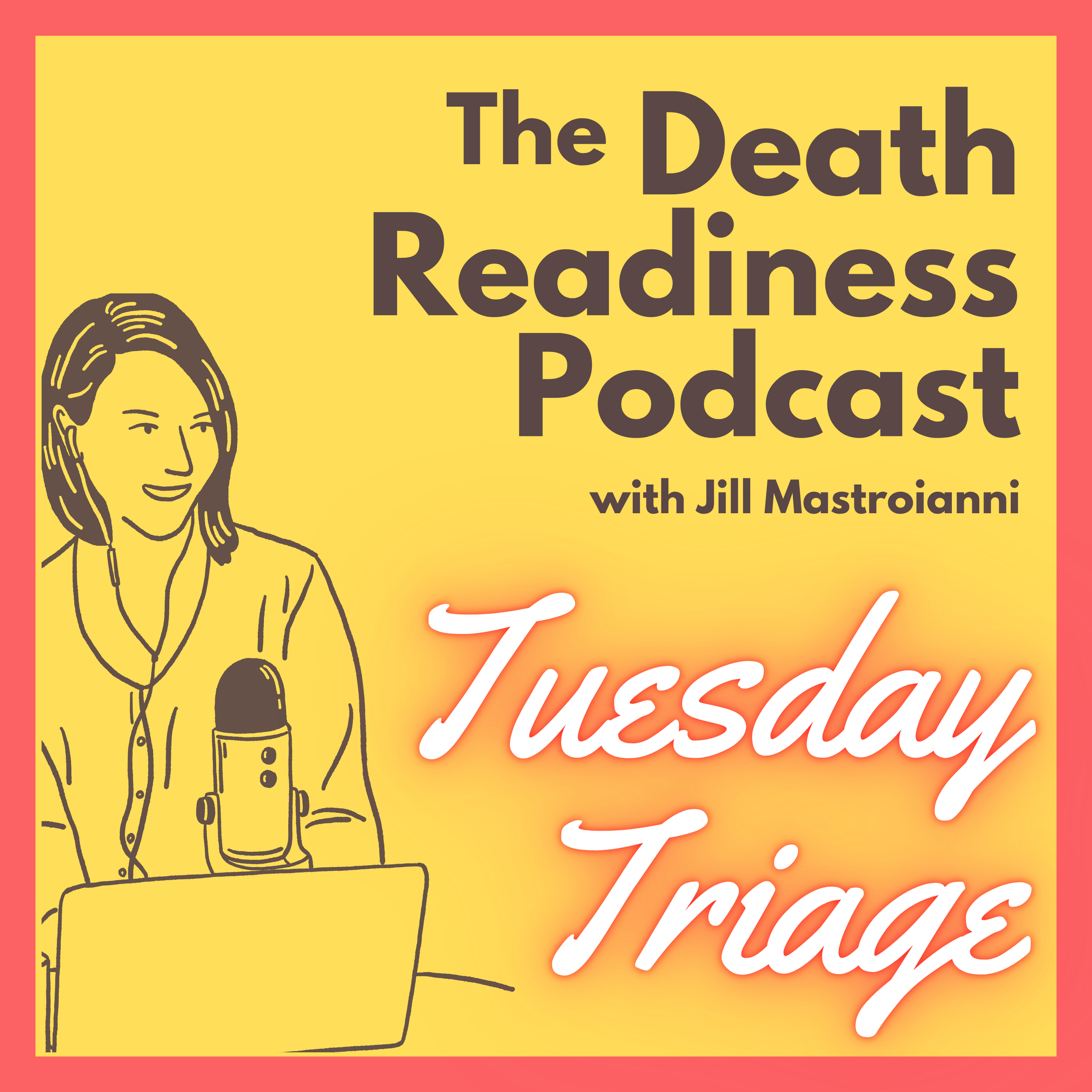
Why You Need (or Don’t Need) a Trust
If you’ve ever been told, “You need a trust,” and didn’t quite know what that meant, you’re not alone.
It’s something people hear from well-meaning friends, financial advisors, or maybe even their parents. But rarely does anyone slow down and explain why you might need one or whether it makes sense for your situation.
That’s what this week’s Tuesday Triage episode is all about.

What to Do with a Dead Body, Who’s in Charge, and Who Pays
When someone close to you dies, even if it’s expected, it knocks the wind out of you. You’re left juggling grief and logistics all at once.
This week, I spoke with funeral director Jamie Sarche to better understand what actually happens when someone dies.
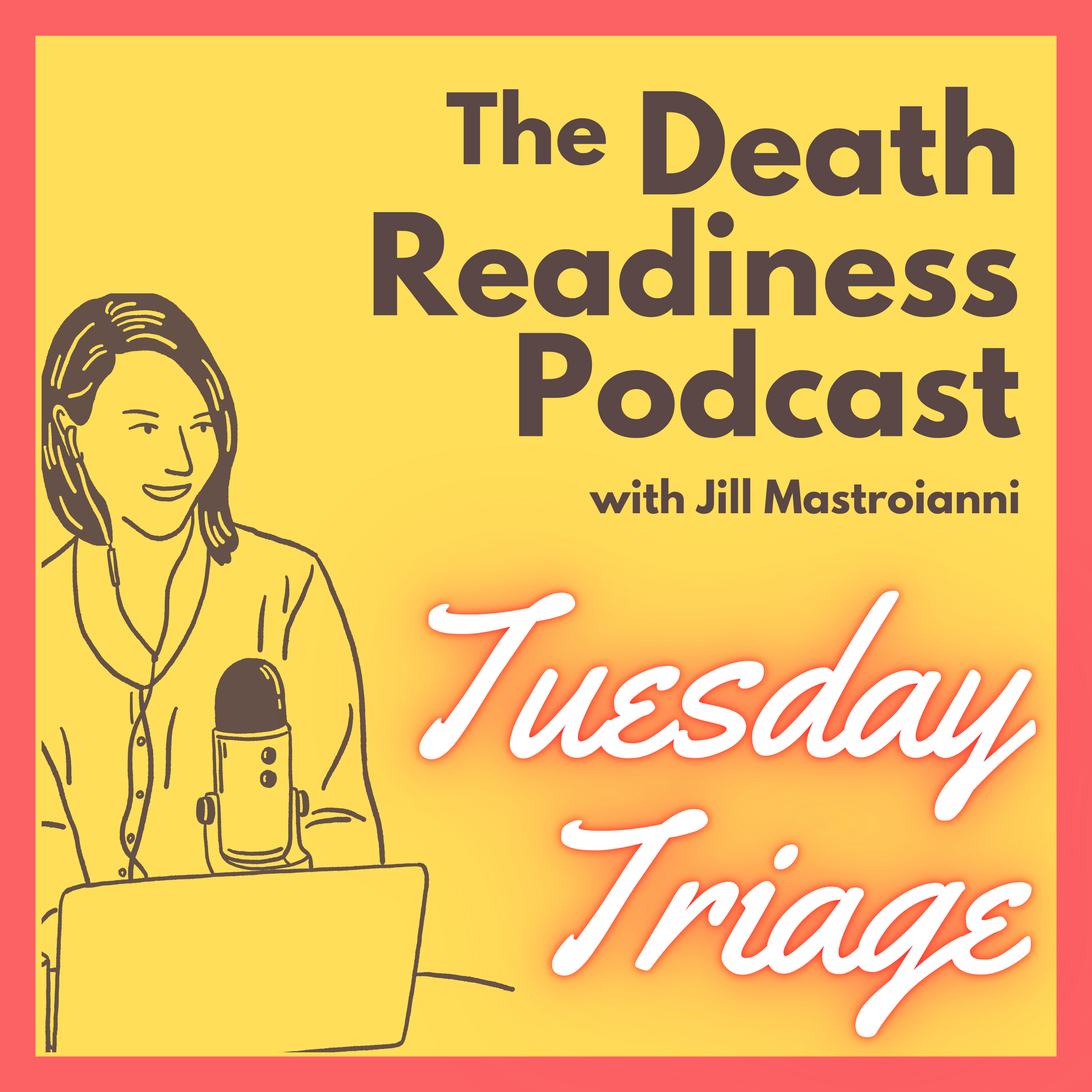
Preparing for your Parent’s Cognitive Decline Before it’s too Late
When a parent’s health starts to decline, the questions you never wanted to ask become urgent. Bills still need to be paid, decisions still need to be made. Are you legally allowed to step in?
This week on our first Tuesday Triage episode, I tackled a question from a listener named Molly. Her situation might sound familiar to you.

How to Prevent your Estate Plan from Becoming a Family Battlefield
In Michigan, a recent guardianship case caught my attention—not just because it happened where I live, but because it’s the kind of story I see over and over again, in different forms, across the country.

Why I Turned Off Alex Hormozi’s Podcast
Like many small business owners, I’m always working and always learning.
Podcasts are one of my favorite ways to learn. They fit into dog walks, dishwashing, and school pickup lines—moments when I want my brain to stay active even if my hands are full.
This morning, while walking my dog, I pressed play on The Game with Alex Hormozi. I’m new to his show. This was maybe my third episode.
Alex was talking about what he called “exploitation mode,” his strategy for extracting the most value from the thing you already have. I was listening in, curious about how to apply that mindset to my business.

How Our Favorite Movies Trained Us to Accept Less
When you think about “estate planning,” old rom-coms probably don’t come to mind. But maybe they should. Because for many of us, the movies we grew up watching taught us more than we realized, especially about what we’re expected to accept.
These movies quietly trained us to accept less: less agency, less credit, less space, less support. And those lessons show up everywhere, from hospital rooms to attorney meetings, from caregiving roles to family finances.
In Episode 15 of The Death Readiness Podcast, I take a closer look at these cultural scripts, and how they still shape the way many women carry the emotional and logistical weight of family life.

If “Everyone Is Welcome” is too political, what kind of legacy are we creating?
Legacy isn’t just about wills and wealth. It’s the story we leave behind in our families, our communities, and our public institutions. It’s passed down in words and in silences, in the posters that stay on the wall, and in the ones we quietly take down.
The next generation is watching.

How to Succeed in the Caregiving Role No One Trained You For
Caregiving isn’t side work - it’s a leadership position. Host Jill Mastroianni talks with Jennifer O’Brien, author of Care Boss and The Hospice Doctor’s Widow, about the emotional labor, strategic thinking, and societal blind spots surrounding caregiving. Drawing from her experience leading healthcare organizations as well as caring for her husband and parents, Jennifer challenges the notion of caregiving as “soft” work and offers real-world tools to do it well. We cover everything from palliative care to “go bags” to how not to offer help to a caregiver.

How Joseph Pulitzer’s 1864 Plunge Into Boston Harbor Helps Us Understand Memorial Day
Memorial Day began in the ashes of the Civil War. It started with families—ordinary people—who began placing spring flowers on the graves of their dead. Many of the dead weren’t even American citizens yet. I learned this after reading Sharon McMahon’s recent newsletter in The Preamble.